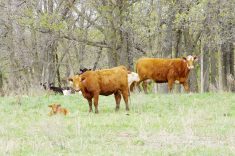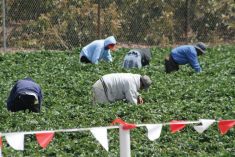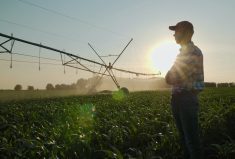An initiative to equip female entrepreneurs in agriculture and agribusiness with more of the tools and skills they need to succeed is moving into a second phase.
“We really wanted to focus on reflecting where women are at in their roles — sole owners, partners, decision-makers in the business, or the unsung heroes who are playing a supportive role,” said Heather Broughton, president of Agri-Food Management Excellence, which offers high-level management training for farmers and agribusiness professionals.
“It doesn’t matter who you are or what you do. We’re trying to reach all women.”
Read Also

Innovation takes centre stage at record-breaking Ag Expo
Lethbridge event hits capacity with 326 global exhibitors showcasing the latest ag tech, innovation and the 129th North American Seed Fair.
The Empowering Lasting Leadership Excellence program — or ELLE — builds on the Success for Women in Agri-Food program, a three-year pilot project launched by Broughton in 2017.
The goal of both is to address some of the unique challenges faced by women agri-entrepreneurs (which include access to financing, developing management skill sets, and gender bias). And caring for children and other family commitments tend to fall more heavily on women.
“It’s not always easy for women to actually participate in stuff like this, either by themselves or with their spouse or business partner,” said Broughton. “I really wanted to create a program that overcomes some of those barriers.”
ELLE, which launches in January and costs $2,499, will offer leadership and business management courses in a hybrid delivery model over 12 months, with both virtual and in-person learning (at 11 locations, including three in Alberta) to connect women from across the country.
Participants will have the option of joining virtual ‘café chats’ as well as peer groups.
“I don’t expect everybody will want to jump into a peer group, but for those who want to take a more in-depth and focused approach to learning from others, peer groups come with accountability, feedback, ideas, and support,” said Broughton.
The program has two streams — one for newer entrants with less than five years of experience, and another for women with more than five years of experience.
“Everybody’s learning needs are not the same, just depending on where they’re at in their business and their role,” said Broughton. “But both streams will have elements of strategy, governance, finance, human resource management, succession planning, marketing, and risk management.”
These are the skills that women agri-entrepreneurs have said they need.
“From the research we did in the initial project and other research that’s been done, there’s a need for skill development for women,” she said. “Agriculture is a little unique, so we wanted to provide them those skills and that network.”
Networking will be another key component.
“We all think sometimes that we’re the only ones experiencing a problem, but when you start actually talking to others, it opens the doors for that dialogue and the support that you gain from it,” she said.
“I think it’s really going to demonstrate the value of making connections and learning from other people. It’s really a testament to the value of networks.”
Participants will also get an e-workbook that they can work through with their spouse or business partner.
“Even though it’s a program for women, we’re very conscious that there’s discussion that needs to be had from the learning if you have a partner, so we’re trying to provide an opportunity for that to happen.”
And these management skills aren’t just for those working in the corporate world, said Broughton.
“Even if you’re not in an industry position, these skills are important within your own family farm. By building those management skills, you make stronger business managers, which means better decision-making and a stronger farm.”
For more information on ELLE, go to agrifoodtraining.com.















